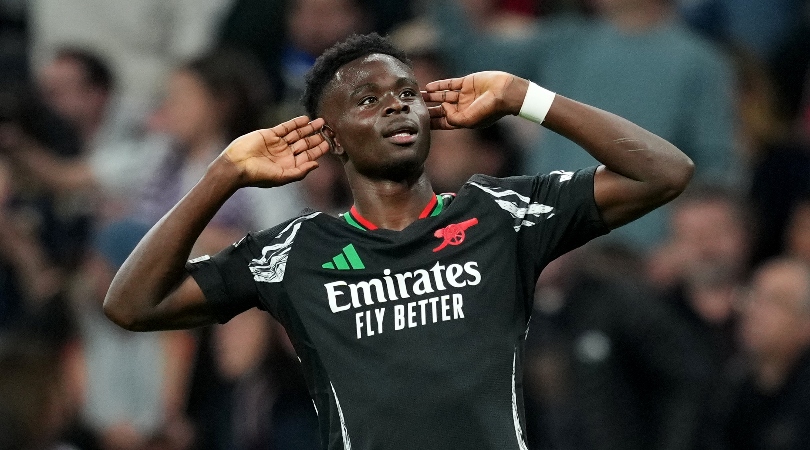FourFourTwo's 50 Best Football Managers in the World 2015: No.6
The bearded one may have endured a bad final season at Borussia Dortmund, but the brilliant six that preceded it were only made possible by the world's most charismatic boss...
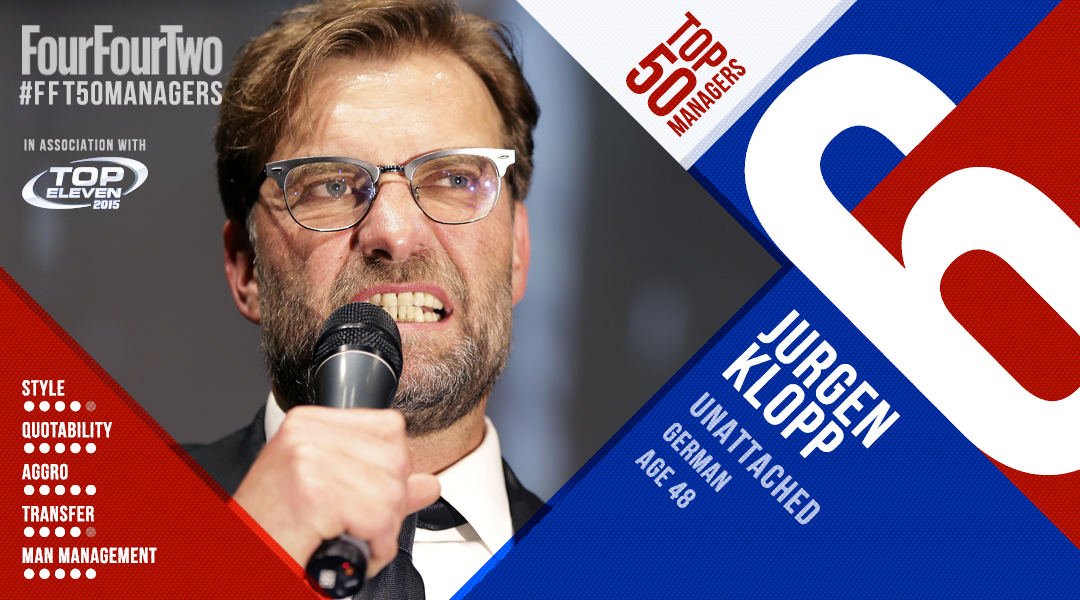
Sometimes little things can change the course of football history.
In February 2008, Hamburg came very close to signing Jürgen Klopp for the new season. In fact, the club had already reached an agreement over wages with the man who was then coaching Mainz in the second division.
But there were some other options, too, and so a group of scouts was asked to monitor the various candidates and give their opinions on them. The dossier on Klopp was damning. The scouts disliked the fact that he wore jeans with holes in them. They complained he was often badly shaved. They called him flippant.

Hamburg scouts disliked the fact that he wore jeans with holes in them. They complained he was often badly shaved. They called him flippant
Hamburg crossed Klopp's name off the list and he joined Borussia Dortmund instead. The rest, as they say, is history. Hamburg went through 13 different coaches during the next seven years, while Klopp turned Dortmund into arguably the most exciting team on the continent and became one of the most coveted managers in Europe precisely for being his own man. Oh, and he also won back-to-back Bundesliga titles, plus the domestic cup, and guided his team to the Champions League final.
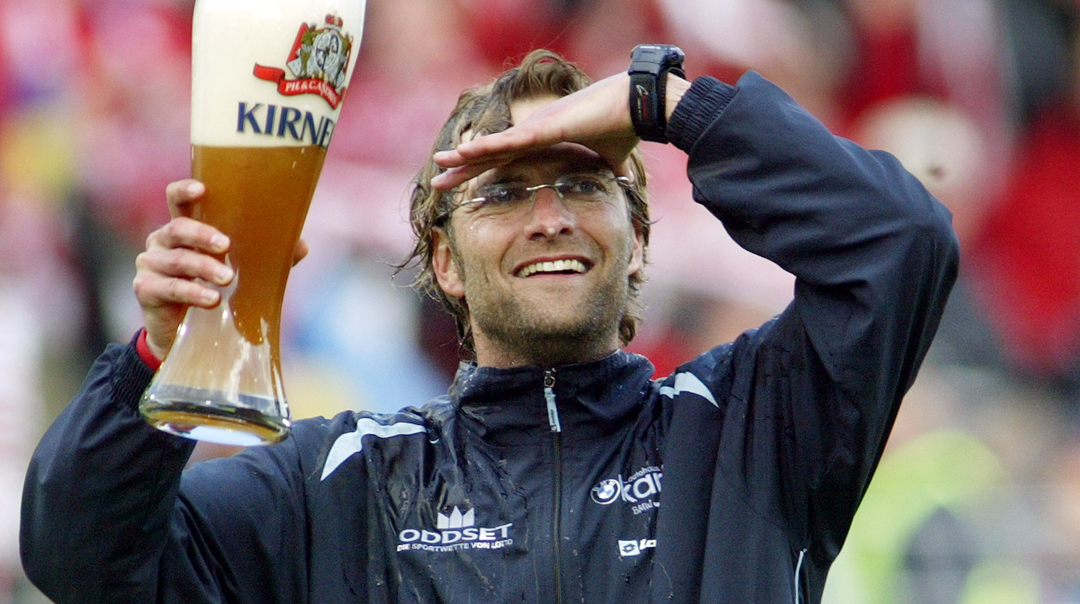
An unexpected surprise
Sportscaster Johannes B. Kerne once asked Klopp before a show: 'If I were one of your players, what would you do now to get my adrenaline pumping?' Klopp looked at him for a second, then gave him a resounding slap in the face
However, none of this was planned. When Dortmund approached Klopp, they didn't do it to win trophies. Only three years earlier, the club had been on the verge of bankruptcy. All Borussia were looking for was someone who could breathe new life into a team that had become old, stale and uninspired.
Klopp, meanwhile, knew there were no riches to spend in the transfer market. (In fact, when he received Dortmund's original offer, he called back and informed the club he was earning more money than that at Mainz.) All he wanted was a club where football was more than just a game or a business and where the job would be fun.
Get FourFourTwo Newsletter
The best features, fun and footballing quizzes, straight to your inbox every week.
It seems silly now, but at first Dortmund's supporters were critical of Klopp. He had worked wonders at Mainz, taking the small club to the Bundesliga and keeping them there for three years. But of course, that wasn't the same as coaching a tradition-laden club with a massive fan base like Dortmund’s. Also, many dismissed him as a media darling who merely talked a good game. They said the main reason he was so popular and sought-after was his work as a pundit on television, where he was analysing internationals in a most entertaining and refreshing manner.
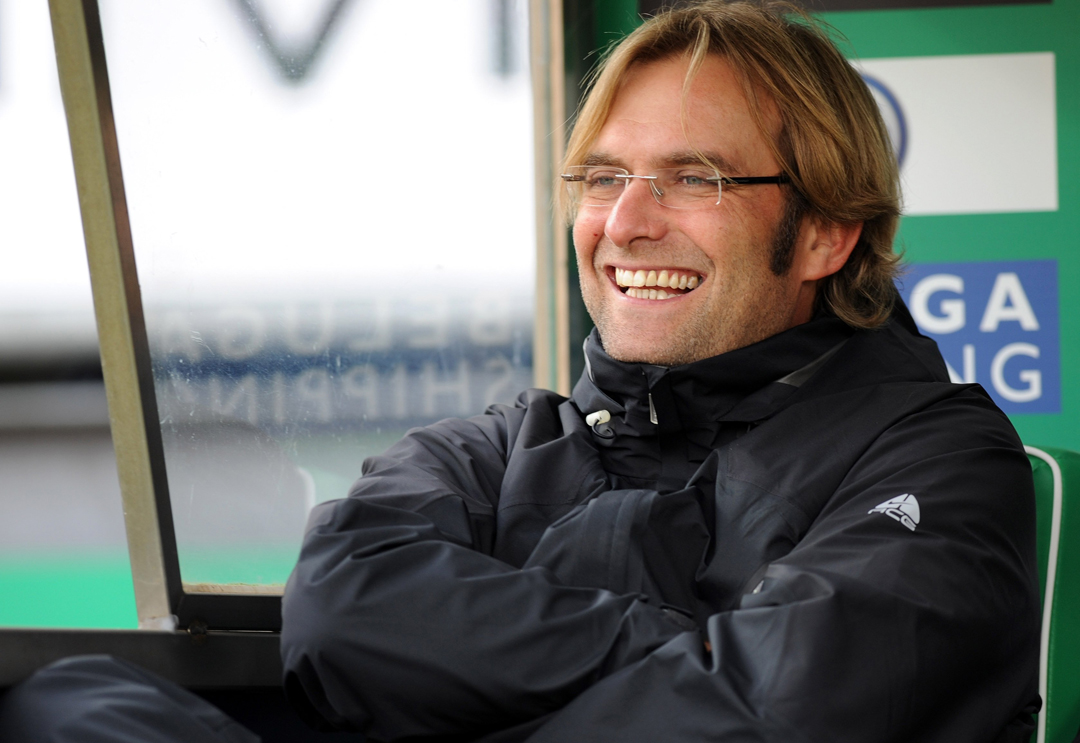
Finally, some people said his only strength was motivating people. His partner on television, the sportscaster Johannes B. Kerner, later disclosed he had once, a few seconds before the show, asked Klopp: "Everybody says you can really fire up people. If I were one of your players, what would you do now to get my adrenaline pumping?" Klopp looked at him for a second, then gave him a resounding slap in the face.
In a way, all those reservations were not unfounded. Like all really good modern coaches, Klopp is charismatic and has an innate talent for communicating with people. Whether he is talking to fans, players or someone from the media, he always makes you feel that you are the most important person in the room for as long as the conversation lasts.
This skill also makes him the sort of coach footballers want to play for. During his first two years in Dortmund, Klopp rebuilt the team by selling star players and veterans and replacing them with young, gifted hopefuls. And yet one of the veterans Klopp ousted declared: "One reason I'm sorry to leave the club is that I would have loved to work with this coach."
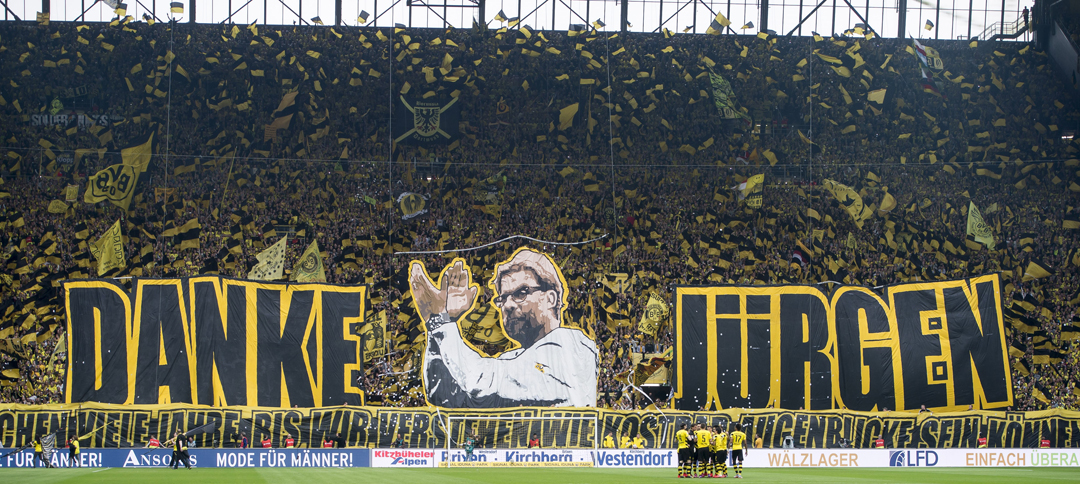
Hello, Pep
I have watched Bayern many times. I don't think they have played so many long balls in three years
But Klopp did a lot more than just talk a good game. He invented a new one. He took Barcelona's pressing system and combined it with a counter-attacking game based on pace, thrust and movement to arrive at an ultra-aggressive style based on what now seems to be known everywhere by the Anglo-German term Klopp always uses: gegenpressing.
Perhaps it's too much to call Klopp, as the columnist Clark Whitney has done, "the creator of a new tactical movement that has been emulated by some of Europe's strongest clubs". But it's certainly true that Dortmund's daring style posed a challenge. Teams had to find a way of dealing with such intensity and enthusiasm.
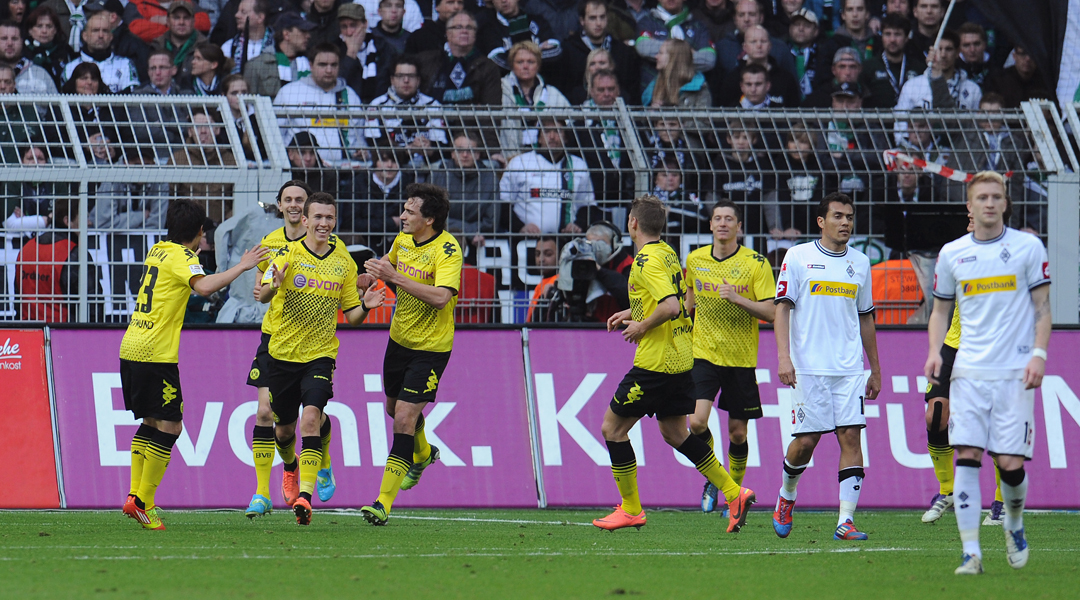
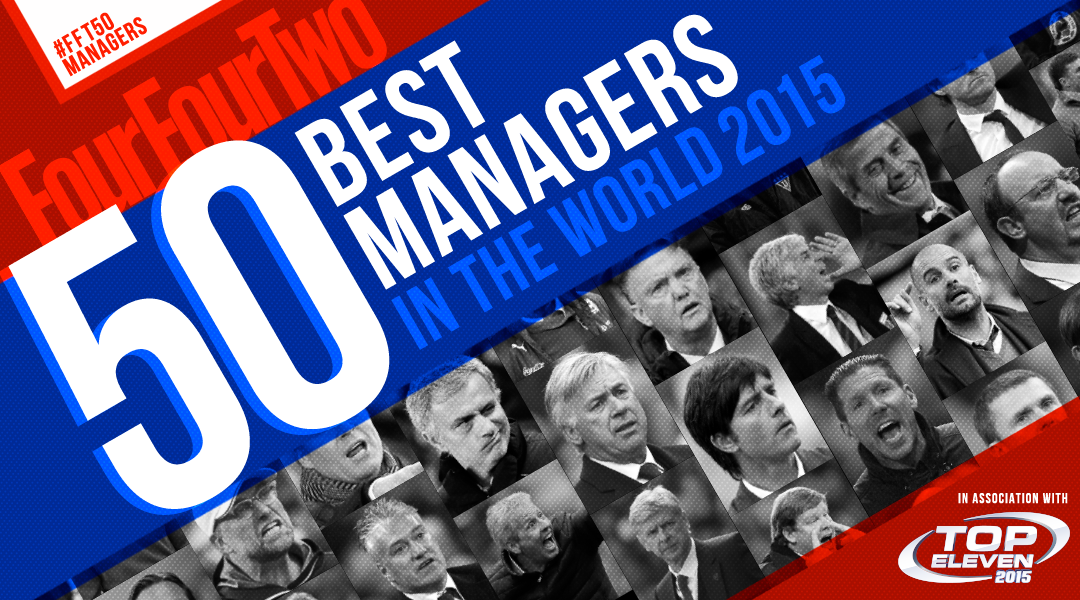
When Pep Guardiola first travelled to Dortmund as Bayern Munich coach in November 2013, he stunned observers by eschewing the passing game that is his trademark. In an attempt to escape Klopp's gegenpressing, his players did the unthinkable – they hoofed the ball upfield. "I have watched Bayern many times," Klopp said after the game. "I don't think they have played so many long balls in three years."
The most celebrated and innovative manager of his generation had decided to betray his principles in an effort to counter Klopp's tactical system. It was the highest compliment a coach can be paid.
Tactics corner (by Michael Cox)
"Jurgen Klopp’s period with Dortmund came to an underwhelming end with a cup final defeat to Wolfsburg, at the end of a terrible league campaign when the club briefly flirted with relegation. But two Bundesliga titles and a Champions League final means Klopp remains hugely respected.
"The key to his approach is energy. At their peak, Dortmund did everything at incredible speed: their defensive transitions, their attacking transitions, their pressing high up the pitch in order to regain possession immediately. Dortmund were cohesive enough to play very compact, and yet be extremely dynamic with their collective movement across the pitch, and in full flow it was a wonderful sight.
"Initially a 4-2-3-1 man, Klopp later experimented with 4-3-3 and 4-3-1-2, and occasionally switched between a four- and a three-man defence. Sometimes, it felt like he changed too much, too often, and questions must be asked about Klopp’s expertise in the transfer market too – Robert Lewandowski’s replacements simply weren’t up to it.
"But as a training-ground coach and a tactician, Klopp is rightly revered across the continent. As with many of the managers currently regarded amongst the elite, the question is whether his methods will transfer to other clubs."
FFT's 50 Best Football Managers: 50-46 • 45-41 • 40-36 • 35-31 • 30-26 • 25-21 • 20-16 • 15-11 • 10 • 9 • 8 • 7 • 6 • 5 • 4 • 3 • 2 • 1
#FFT50MANAGERS See our full list of top 50 managers in the world and features on them here
Check out FourFourTwo Polls and Contests on LockerDomeon LockerDome
